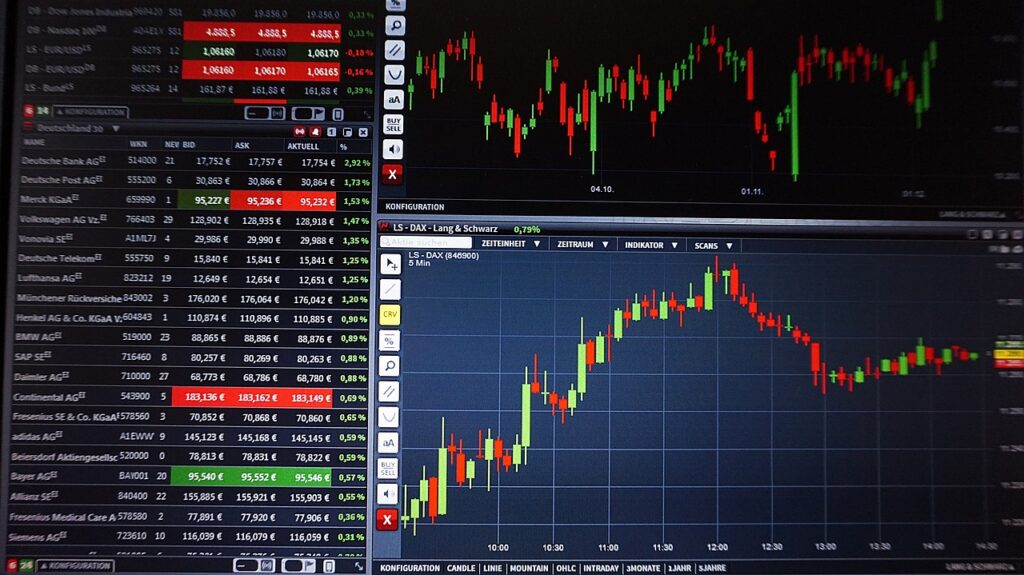In the ever-evolving world of trading, the adage “knowledge is power” couldn’t be more relevant. When it comes to selecting the best UK trading platforms for your needs, understanding the intricacies and options available is crucial. In this interview with Daniel Calugar, an expert in the field, you’ll gain valuable insights on what to consider when evaluating different platforms. From examining your trading goals to comparing fees and commissions, Calugar’s expertise will help you navigate the complex landscape of trading platforms. So, buckle up and get ready to discover the key factors that can make all the difference in your trading journey.
Key Takeaways
- Evaluating trading goals and aligning them with desired outcomes is crucial when selecting a trading platform in the UK.
- Thoroughly researching platform features such as copy trading, AI automation, and customization options is important to make an informed decision.
- Understanding different account types offered by platforms, such as individual, joint, retirement, and margin accounts, helps in choosing the right one for your trading needs.
- Comparing fees and commissions, including transparent fee structures, competitive rates, and potential additional charges, is essential to optimize trading profitability.
Evaluating Your Trading Goals
When evaluating your trading goals, it is important to consider your investment objectives and risk tolerance. Your trading strategy should align with your desired outcomes. Are you looking for short-term gains or long-term growth? This decision will influence the type of investments you make and the level of risk you are willing to take. Hedge funds and mutual funds offer different investment strategies, so it is essential to research and understand which one aligns better with your goals. Additionally, consider whether you want to actively manage your trades or prefer a more hands-off approach. Copy trading or algorithmic trading can be options for a more automated approach.
Furthermore, assess the level of control and customization you desire in your trading activities. Some platforms offer advanced technical analysis tools that can help you make informed decisions. If you are interested in crypto trading, make sure to choose a platform that supports this asset class. However, keep in mind that crypto trading comes with its own set of risks and volatility.
Researching Platform Features
Image by Csaba Nagy from Pixabay
To effectively choose a trading platform, it is crucial to thoroughly research the features offered by different platforms. Considering the range of features available can help you make informed decisions and find a platform that meets your specific needs. Look for platforms that offer features such as copy trading, AI automation, customization options, and specialized platforms for algorithmic trading strategies.
An easy-to-use interface is important, especially if you are an experienced investor. It allows you to navigate the platform effortlessly and execute trades quickly. Access to a wide range of investment options is also essential, as it provides you with the flexibility to diversify your portfolio.
Robust educational resources are another important feature to consider. They can help you enhance your trading skills and stay informed about market trends and strategies. Additionally, evaluate the level of coding skills required for customization and algorithmic trading strategies. Some platforms may require advanced coding knowledge, while others offer user-friendly tools for creating and implementing algorithms.
For those interested in algorithmic trading, specialized platforms are worth exploring. These platforms often offer advanced visualization capabilities, access to specific markets, and integration with top brokerage companies. Lastly, consider the regulatory compliance and settlement history of platform providers to ensure the security and ethical standards of the trading platform. Thoroughly researching platform features will help you make an informed decision and find the best UK trading platform for your needs.
Understanding Account Types
Different trading platforms offer a range of account types to cater to the diverse needs of traders. These account types may include features such as commission-free trading, advanced trading tools, and varying levels of customer support. It is crucial for traders to understand the different account types available so that they can choose the platform that best suits their trading style and goals.
Common account types include individual accounts, joint accounts, retirement accounts, and margin accounts. Individual accounts are typically used by individual traders who want to trade using their own funds. Joint accounts are for multiple individuals who want to trade together and share the account. Retirement accounts are specifically designed for retirement savings and may offer tax advantages. Margin accounts allow traders to borrow funds from the broker to increase their trading power.
When selecting a trading platform, it is important to consider the account type that aligns with your trading strategy. For example, if you plan on using algo trading, it is essential to choose a platform that offers an account type that allows for automated trading. Experienced investor Daniel Calugar suggests that traders should also consider the ability to set the least amount of capital required to open an account and the average return on investment offered by the platform.
Understanding the different account types and their implications, such as tax regulations, is crucial for selecting the best trading platform for your needs. It is recommended to thoroughly research and compare the account types offered by different platforms to ensure that you choose the one that will best support your trading goals.
Comparing Fees and Commissions
To effectively compare costs, it is important to consider the fees and commissions associated with various UK trading platforms. Daniel Calugar, a trading expert, emphasizes the significance of evaluating these factors to optimize your trading profitability. Here are four key points to keep in mind when comparing fees and commissions:
- Transparent Fee Structures: Look for platforms that provide clear and transparent fee structures. This will help you understand exactly what you’re being charged for and make informed decisions about your trading activities.
- Low Commission Rates: Seek out platforms with competitive commission rates. Lower rates mean you retain a higher percentage of your profits, which can significantly impact your overall trading profitability.
- Additional Charges: Pay attention to any additional charges that platforms may impose, such as inactivity fees, withdrawal fees, and currency conversion fees. These charges can add up over time and impact your trading costs.
- Trading Volume and Investment Frequency: Consider the impact of fees and commissions on your trading volume and investment frequency. Some platforms may offer lower fees but have higher minimum investment requirements, which may not be suitable for your trading style.
Considering User Experience and Support
Image by Gerd Altmann from Pixabay
Considering the user experience and support offered is crucial when selecting a UK trading platform, as it can greatly impact your trading journey. To ensure a smooth and efficient trading experience, look for a platform that is easy to use and navigate. A user-friendly interface will enable you to execute trades quickly and efficiently, without any unnecessary complexities or confusion.
In addition to ease of use, support is another important factor to consider. A trading platform should provide comprehensive customer support to assist you in case of any issues or inquiries. Look for platforms that offer responsive support channels such as live chat, phone support, and email assistance. This will ensure that any trading-related concerns are addressed promptly, allowing you to focus on your trades and investments.
Furthermore, the availability of educational resources and tutorials is also crucial in enhancing your user experience. A good trading platform will provide access to educational materials, tutorials, and demo accounts to support your learning and proficiency in using the platform effectively. These resources will enable you to understand the platform’s features and functionalities, and help you make informed trading decisions.
Lastly, evaluate the platform’s community forums, user guides, and online resources to gauge the level of support and engagement available for users. A platform that fosters a supportive community and provides comprehensive resources will enhance your overall trading experience and facilitate your growth as a trader.



